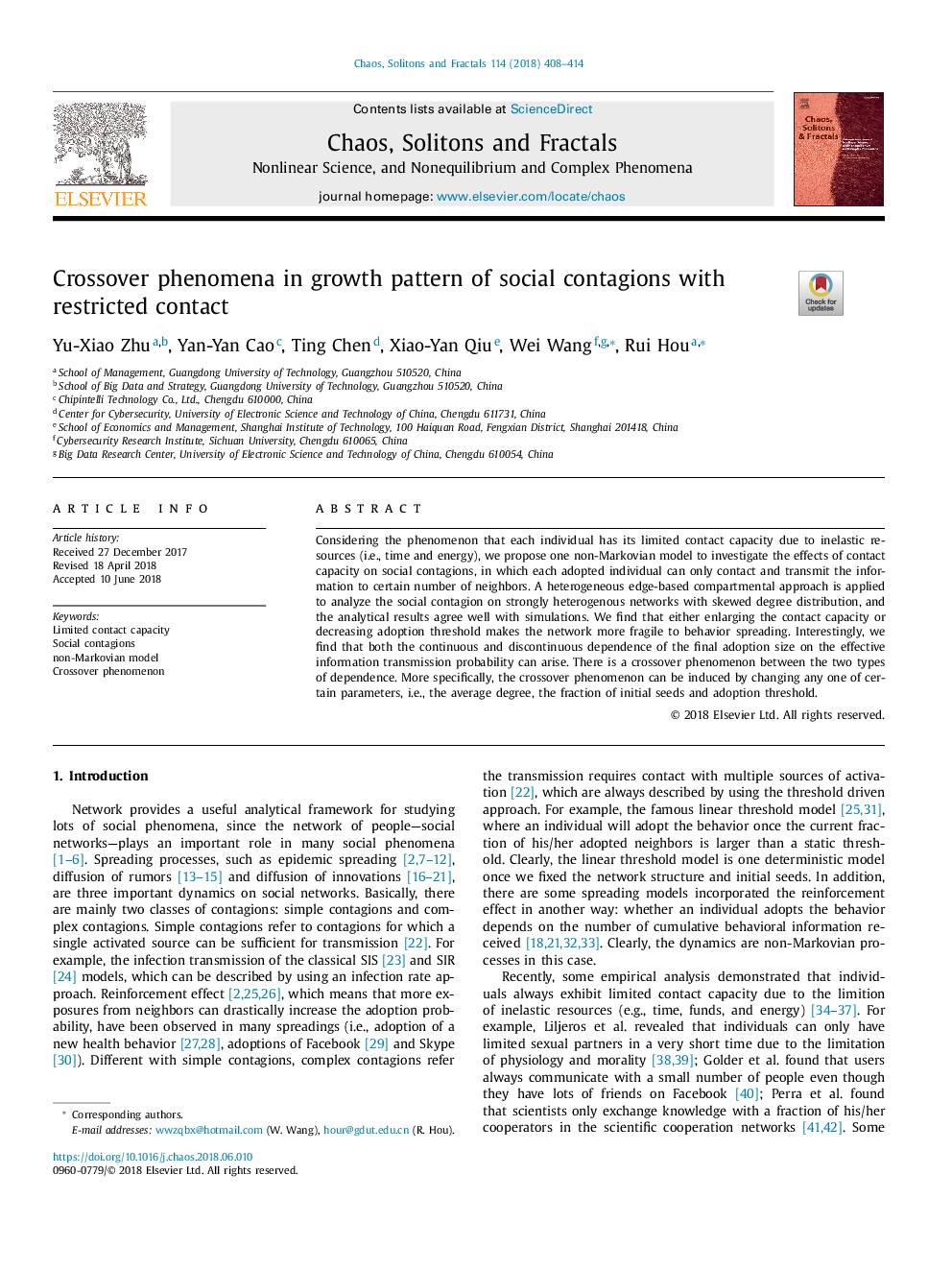| Article ID | Journal | Published Year | Pages | File Type |
|---|---|---|---|---|
| 8253397 | Chaos, Solitons & Fractals | 2018 | 7 Pages |
Abstract
Considering the phenomenon that each individual has its limited contact capacity due to inelastic resources (i.e., time and energy), we propose one non-Markovian model to investigate the effects of contact capacity on social contagions, in which each adopted individual can only contact and transmit the information to certain number of neighbors. A heterogeneous edge-based compartmental approach is applied to analyze the social contagion on strongly heterogenous networks with skewed degree distribution, and the analytical results agree well with simulations. We find that either enlarging the contact capacity or decreasing adoption threshold makes the network more fragile to behavior spreading. Interestingly, we find that both the continuous and discontinuous dependence of the final adoption size on the effective information transmission probability can arise. There is a crossover phenomenon between the two types of dependence. More specifically, the crossover phenomenon can be induced by changing any one of certain parameters, i.e., the average degree, the fraction of initial seeds and adoption threshold.
Keywords
Related Topics
Physical Sciences and Engineering
Physics and Astronomy
Statistical and Nonlinear Physics
Authors
Yu-Xiao Zhu, Yan-Yan Cao, Ting Chen, Xiao-Yan Qiu, Wei Wang, Rui Hou,
